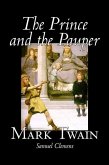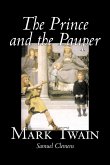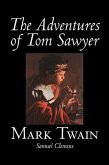"H.L. Mencken wrote of Mark Twain, 'I believe that he was the true father of our national literature, the first genuinely American artist of the blood royal.' Father, Mark Twain is. And brother, friend, and wise old grandpa. But no offense to Mr. Mencken: Sam'l Clemens is American and there ain't no royalty around here 'ceptin maybe the Duke or some one like that. Unless it's the "Prince and the Pauper" or King Arthur in "Connecticut Yankee in King Arthur's Court." "Hank the Yankee asks, 'You know about transmigration of souls; do you know about transposition of epochs -- and bodies?' "'Wit ye well, "I saw it done.'" Then, after a pause, added: 'I did it myself.' "Just like Mark Twain -- Samuel Langhorne Clemens." -- From Amy Sterling Casil's Introduction








